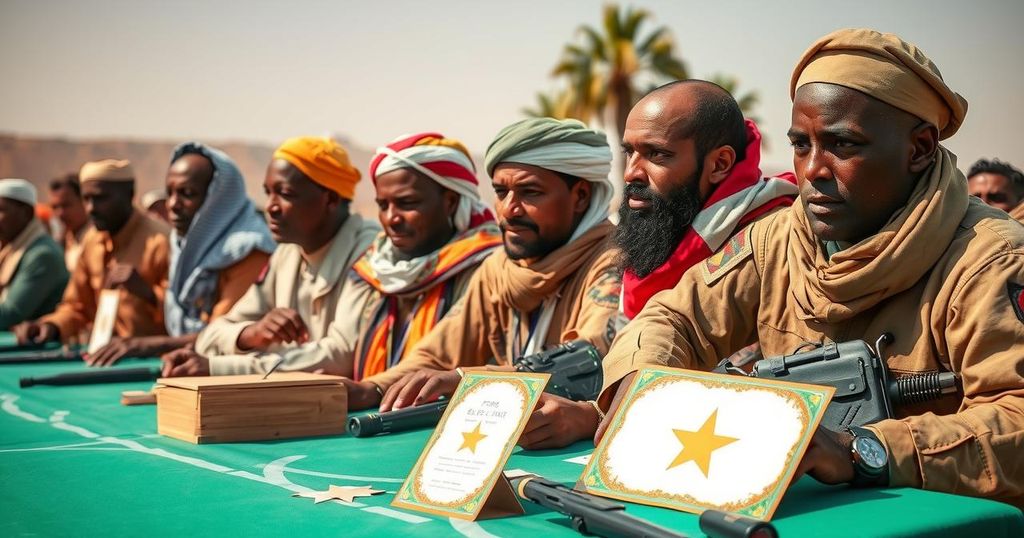Chad’s military and nomads voted in elections seen as a step towards democracy while opposition groups boycotted the process, branding it illegitimate. Initial voter turnout among military personnel and nomads was around 45%. The elections occur against a backdrop of jihadist violence, socioeconomic issues, and political instability following President Mahamat Idriss Deby’s leadership.
On Saturday, Chad’s military and nomadic communities participated in the nation’s general elections, which the government views as a pivotal move towards democracy. However, the elections have been overshadowed by a boycott from opposition parties, which have labeled the electoral process a mere facade. Voting for military personnel and nomads took place a day ahead of the general populace, due to logistical considerations. Initial reports indicated a turnout of approximately 45% among the 200,000 nomads and 45,000 soldiers by midday, with polling stations operating smoothly as noted by election official Ousmane Houzibe. The nomads expressed their desire for elected representatives to address urgent issues exacerbated by climate change, which has severely impacted their livelihoods.
The electoral proceedings unfold amid a complex backdrop that includes military conflicts with Boko Haram, the cessation of a military agreement with France, and allegations concerning Chad’s involvement in the Sudanese crisis. President Mahamat Idriss Deby Itno positioned the elections as a vital component of his administration’s efforts to enhance democratic governance. Following the death of his father, Idriss Deby Itno, the younger Deby assumed leadership in 2021 and successfully secured a contested five-year presidential term last year. The prior legislative elections occurred in 2011, with subsequent voting initiatives delayed due to factors such as security challenges, economic constraints, and the global pandemic.
Chad has faced ongoing political turmoil and humanitarian crises influenced by both internal strife and external pressures. With a history of authoritarian rule, the political landscape has been characterized by a lack of democratic processes and opposition party repression. The recent call for elections aims to change this trajectory, yet the situation remains fragile due to challenges such as violence from extremist groups, socio-economic hardships exacerbated by climate issues, and a contentious relationship with France. President Mahamat Idriss Deby’s leadership, embedded in a legacy of his father’s long reign, faces scrutiny amid claims of electoral malpractice.
In conclusion, the recent voting by Chad’s military and nomads underscores significant electoral developments amid a politically challenging environment. While the government promotes the elections as a stride towards democracy, opposition challenges cast doubt on the legitimacy of the process. The participation of nomadic populations highlights pressing social concerns, particularly related to their livelihoods amidst climate change. As Chad navigates its complex political landscape, the effectiveness and acceptance of these elections remain to be seen.
Original Source: www.barrons.com






